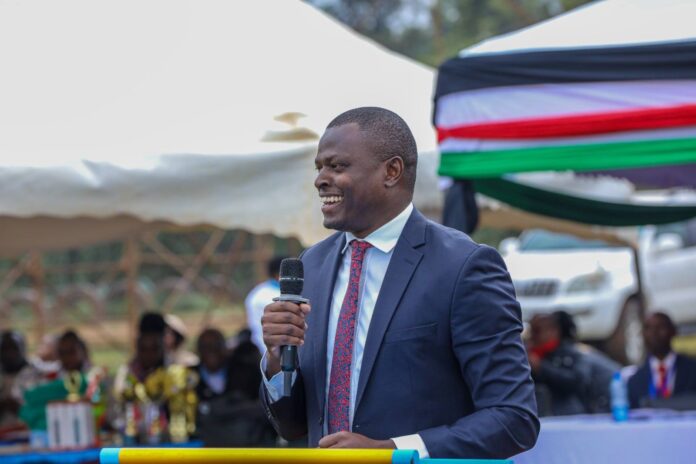Parliament: In a reshuffle carried out within Parliament, the ruling United Democratic Alliance (UDA) has dropped Kiharu MP Ndindi Nyoro from the powerful Budget and Appropriations Committee, reassigning him to the relatively low-profile Committee on Migration.
Nyoro, once a prominent figure in President William Ruto’s inner circle and a former chairperson of the Budget Committee, had held a central role in shaping national spending for over two years.
His removal signals a notable downturn in his political standing.
He is now replaced on the committee by Mathioya MP Edwin Mugo; Alego Usonga MP Samuel Atandi had earlier succeeded him as chair.
Parliamentary insiders suggest Nyoro’s downfall may be linked to his stance during the controversial 2024 impeachment proceedings against former Deputy President Rigathi Gachagua.
Unlike many of his colleagues who toed the party line, Nyoro chose not to cast a vote—a move interpreted by some within UDA as a sign of disloyalty.
In recent months, Nyoro has also publicly criticized several government policies, further straining relations with party leadership.
The Budget and Appropriations Committee holds considerable influence in Parliament, overseeing key decisions on public expenditure and resource allocation.
By law, it is chaired by a member of the majority party and has a maximum of 50 members, making membership both exclusive and politically strategic.
The changes affecting Nyoro were part of a broader committee reshuffle across the National Assembly.
At the Departmental Committee on Blue Economy, Water and Irrigation, Lamu West MP Stanley Muthama was replaced by Njoro MP Charity Kathambi.
Meanwhile, Joyce Bensouda was appointed to fill the seat left vacant by the late Charles Ong’ondo Were, who was shot dead on April 30 while waiting at a traffic light along Ngong Road in Nairobi.
In the Departmental Committee on Labour, Njoroge Mary Wamaua took over from Chelule Liza Chepkorir, who was reassigned to the Departmental Committee on Regional Development, replacing Mary Emaase.
The reshuffle reflects ongoing political realignments within the ruling coalition, as loyalty and internal party discipline increasingly shape parliamentary roles.

